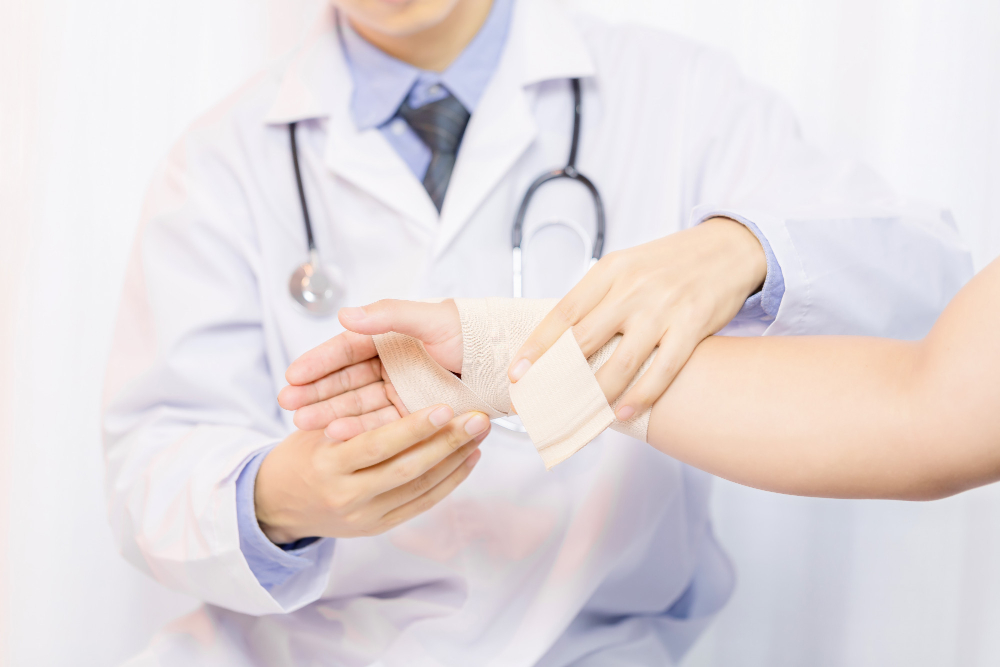
Hand surgery can be life-changing, restoring mobility and reducing pain caused by a variety of conditions, from fractures to carpal tunnel syndrome. But the question on most patients’ minds is, “How long will it take me to recover?” The truth is that recovery timelines vary depending on the type of surgery, your overall health, and the quality of your post-operative care.
This guide provides crucial insights into the recovery process, outlines healing timelines, and offers tips for speeding up your recovery. If you’re based in Florida and are considering hand surgery, we’ll also share information on how to find the best care with an orthopedic surgeon in Debary, FL.
What Affects Recovery Time from Hand Surgery?
Recovery from hand surgery doesn’t follow a one-size-fits-all timeline. Several factors can influence how quickly you heal:
1. Type of Surgery
The type and complexity of your procedure play a major role. For instance:
- Fracture Repairs typically take about 6–8 weeks for the bone to heal but may need additional months of physical therapy for complete functionality.
- Carpal Tunnel Release Surgery often allows patients to return to office work or light activities after 1–2 weeks, though full recovery may take up to 6 weeks.
- Tendon Repairs can take up to 12 weeks, with intensive rehabilitation needed to regain hand function.
2. Age and Overall Health
Younger individuals and those with good overall health may experience faster recovery times thanks to a more robust healing ability. Chronic conditions such as diabetes or thyroid disorders may slow down the recovery process.
3. Post-Surgical Care
Your adherence to post-surgical protocols, including wound care, physical therapy, and follow-up visits, greatly impacts your recovery period.
Typical Recovery Timelines for Common Hand Surgeries
Here’s a closer look at recovery timelines for some of the most common hand surgeries:
A. Fracture Repairs
For broken bones in the hand, doctors usually stabilize the injury with pins, plates, or screws:
- Initial Healing (6–8 weeks): Bones typically fuse together in this period.
- Strength Recovery (6 months): Regaining full strength may take up to six months, depending on the severity of the fracture and therapy progress.
B. Carpal Tunnel Surgery
This procedure involves releasing pressure on the median nerve. Most patients experience significant improvement in their symptoms almost immediately after surgery:
- Initial Recovery (1–2 weeks): During this time, patients can resume light daily activities.
- Full Recovery (up to 6 weeks): Normal hand movement and strength are fully restored with appropriate exercises.
C. Tendon Repair
Tendon injuries can result from deep cuts, overuse, or accidents. Repairs usually involve suturing the tendon back together:
- Initial Healing (2 weeks): The surgical site begins to stabilize.
- Therapy Phase (6–12 weeks): Vigorous physical therapy is critical for full tendon flexibility and strength.
D. Trigger Finger Release
Trigger finger occurs when a finger becomes locked in a bent position. Surgery creates space for the tendon to move freely:
- Immediate Improvement (1–2 weeks): Many patients notice reduced symptoms right after surgery.
- Full Functionality (4–6 weeks): Strength and flexibility are restored through light stretches and gradually resumed activities.
Tips for a Smooth Recovery from Hand Surgery
To speed up recovery and reduce complications, patients can follow these post-operative best practices:
1. Follow-Up Appointments
Regular visits to your specialist ensure that your incision is healing properly and that no complications are developing, such as infections or excessive swelling.
2. Physical Therapy
Therapy is not just for regaining movement; it also prevents stiffness and improves long-term outcomes. Your doctor may recommend tailored exercises, such as:
- Gentle finger stretches
- Grip strengthening tools, like putty or resistance bands
- Range-of-motion exercises for wrist flexibility
3. Protect Your Hand
During the early stages of recovery, protecting the surgical area is crucial. Use splints or bandages as instructed, and avoid lifting heavy objects.
4. Healthy Diet and Hydration
Proper nutrition, including plenty of protein, Vitamin C, and zinc, supports tissue repair and speeds up healing.
5. Rest Strategically
Balance is key. Rest is necessary to prevent overexertion, but even light movement (as approved by your doctor) can prevent stiffness and improve circulation.
6. Avoid Smoking
Smoking reduces blood flow, which can delay wound healing. If you smoke, it’s best to stop before and after surgery.
Signs You’re Healing Properly (and When to See Your Doctor)
Recovery can feel like a rollercoaster, with good and bad days. While discomfort and swelling are common, it’s important to recognize the difference between normal recovery and potential complications.
Signs of Healthy Recovery
- Swelling and mild pain gradually decrease over time.
- Incision looks clean, with no signs of infection.
- Mobility and strength improve week by week during physical therapy.
When to Contact a Doctor
- Persistent swelling or severe pain
- Red or warm incision site, which may signal infection
- Difficulty moving fingers despite therapy
- Bleeding, numbness, or signs of nerve damage
If you notice any of these symptoms, reach out to your orthopedic surgeon immediately.
Why You Should Choose Central Florida Bone & Joint Institute
If you’re searching for an experienced orthopedic surgeon in Debary, FL, you’ll find exceptional care at Central Florida Bone & Joint Institute. Our team specializes in a wide range of hand surgeries designed to restore mobility and drastically improve your quality of life.
We combine cutting-edge technology, customized treatment plans, and compassionate care. Not only do we help you heal, but we guide you through the entire recovery process to ensure your full confidence in the outcome.
Contact us today to schedule a consultation. Your hands are important, and we’re here to help them heal stronger than ever.